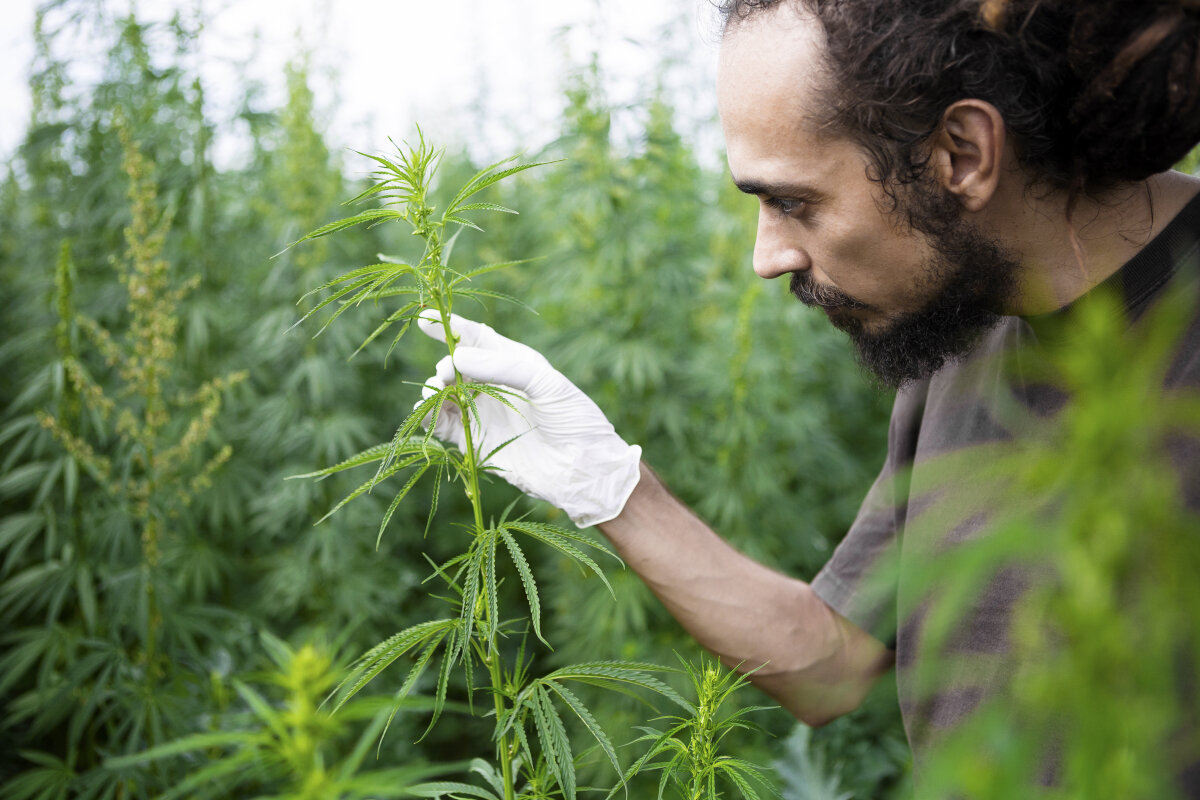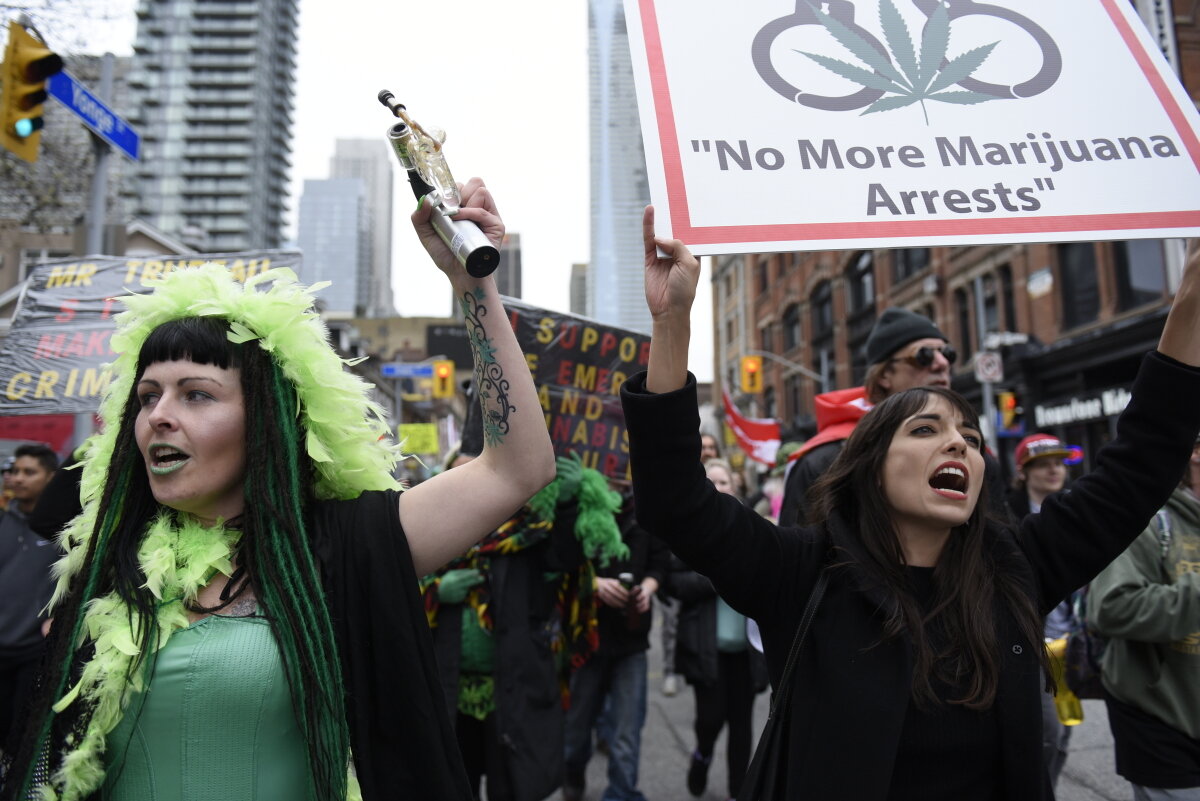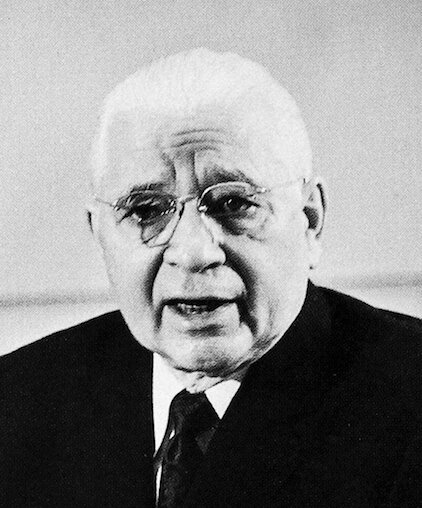Legalizing Marijuana? Oh, Canada!
The cultural revolution has reached an advanced stage in the Western world. And the revolutionaries are winning. The battles over dishonesty, divorce, promiscuity, abortion and even same-sex “marriage” are over and won. The fighters are now advancing “racist microaggressions,” transgender rights, Islamic autonomy and other extreme ideas, including easier access to mind-altering drugs.
Western nations tend to fight these battles at the local level. But not Canada.
Canada always seems to be one of the first nations willing to tackle these issues at a national level. In 2005, it was the fourth country in the world to legalize same-sex “marriage” after the Netherlands, Belgium and Spain. It was the 10th nation to allow its citizens to use an “X” option for their gender on their passports. It is also one of the few nations to criminalize treating transgender individuals differently.
Now Canada’s government is taking the lead with implementing another major social change at the national level: It is legalizing recreational marijuana nationwide. This makes Canada the first Western nation and the second nation in the world to do so after Uruguay.
Challenging the Status Quo
Canada’s strong push to legalize marijuana began before its last federal election in 2015. Justin Trudeau and his Liberal Party promised to legalize marijuana if they won. After winning, they began working on the first drafts of the new law. On June 21, Canada passed Bill C-45, the Cannabis Act. It has received royal assent and will become law on October 17.
“Obviously the current approach—the current prohibition of marijuana—has not worked,” Prime Minister Trudeau said on June 20. Indeed it hasn’t. The government’s latest statistics show that marijuana use has steadily increased. From 1985 to 2015, cannabis use among those 15 years and older rose from 5.6 percent to 12.3 percent.
Now it’s 2018, and in the first quarter of the year, studies found that 14 percent of Canadians age 15 years and older (4.2 million) have used marijuana. More than half of those (56 percent) said they used it daily or weekly.
A 2016 poll found that nearly 70 percent of Canadians favored legalization of the drug. With drug use on the rise, and public support for legalization, the government decided to regulate it rather than prohibit it.
‘Protecting’ Children
The popular defense of the bill was that it would “protect our children” and deprive organized crime of profits. Is this true?
The new national law establishes parameters for possessing and consuming marijuana. It states that marijuana can be purchased at licensed dispensaries by those 18 years and older. It is also now legal to grow it at home, with a limit of four plants per household. A person cannot possess more than 30 grams, and cannot consume it in public spaces. An adult is allowed to share up to 30 grams with another adult.

What about protecting children? Under the new law, it is still a criminal offense to sell marijuana to minors or to use a minor to commit a cannabis-related offense. The law seeks to dissuade youths from using marijuana by prohibiting products and promotions related to marijuana that appeal to youth. Violations of these laws have various consequences, from prison time to millions of dollars in fines.
While the harsh penalties for peddling to minors sound good, one clause undermines the entire law.
While the new law works to deter adults from supplying minors with marijuana, it does very little to deter minors from getting it themselves. Under the law, individuals under the age of 18 will not face criminal prosecution if they are caught possessing and sharing what the government terms “very small amounts” of marijuana. How much is a “very small amount”? Five grams—the equivalent of anywhere from 5 to 20 joints.
For a law meant to protect minors from marijuana, this allows considerable leeway. Why? Marijuana possession is an offense that is added to a person’s criminal record. It cannot be removed easily, and a Canadian with a marijuana possession conviction cannot travel to the United States and is disadvantaged when trying to secure a job.
The reasoning behind the law is that minors will probably break the law, but politicians don’t want them to suffer significant consequences.
Thus, the law isn’t protecting minors from marijuana—it is merely protecting them from legal consequences of using it!

If the law allows a young person to possess enough marijuana to make a small number of joints, and even to share them with their underage peers, does it really offer any deterrent at all? This provision specifically and the nationwide legalization of marijuana in general sends the message that marijuana is acceptable. And no legal restriction stops them from accessing marijuana from their parents and passing it to others or from getting it from a peer at school.
A Problem With Law
The Canadian government’s will to devote manpower and resources to enforce marijuana laws has been weakening for some time. In the last six years, the number of charges has declined—not because fewer people are using it (government data shows marijuana use has risen over that period), but because of relaxed enforcement. And when laws aren’t enforced, it encourages more lawless behavior.
The next question then becomes, if it’s legal, why should people still have marijuana possession charges on their criminal records? Already there is talk of the government exploring options to drop possession charges. Between half a million and a million Canadians are estimated to have marijuana possession charges on their records.
To this point, Canada has tried to use laws to check the spread of marijuana. But because the spread has continued, the federal government assumes that the solution is to simply throw out the law. This is proved in the wording of the bill itself: “The act is also intended to reduce the burden on the criminal justice system in relation to cannabis.” In other words, everyone is doing it, enforcing the law is straining the justice system, so why bother having a law in the first place?
An Appetite for Drugs
Public views in Canada and the Western world concerning drug use are changing radically. Polls have shown that marijuana and drug use across the board is increasing among Canadians. While criminal charges for marijuana and cocaine have fallen, all other drug-related crimes have been rising. Heroin-related crimes have reached their highest levels in decades. The number of people charged with heroin trafficking in 2017 was up 300 percent compared to just 10 years before.
In addition, Canada is dealing with its own opioid crisis, much like the United States. In 2017, Canada saw a 34 percent increase in opioid overdose fatalities compared to 2016, setting a new record.
While it is yet to be seen if use of the remaining illegal drugs increases after marijuana becomes legal, polls show that marijuana use will definitely increase. The government found that of those who hadn’t used marijuana in the first three months of 2018, 6 percent said they will likely try it once it’s legal. Of those already using it, 24 percent said they will likely increase their usage.
The Battle Over Marijuana
The battle for the social acceptance of marijuana is not limited to Canada; the same movement exists in the U.S. and around the Western world. There is a concerted push to change the public image of what historically was an uncontroversial issue. While it was once commonly believed that marijuana was a gateway drug, a battle now rages over the veracity of that claim.

The same battle rages over the “proof” of effects legalized marijuana has on a society. While Canada will be the first Western nation to legalize recreational use nationwide, a number of U.S. states have had legalized recreational marijuana for years. Colorado made it legal in 2012. Has this had a negative impact on the state? It depends on whom you ask. Those on either side of the issue have their set of data to “prove” the positive or negative impacts. In 2016, the Colorado Department of Public Health and Environment said that its survey showed “marijuana use has not increased since legalization, with four of five high school students continuing to say they don’t use marijuana, even occasionally.” Yet a study by the Rocky Mountain High Intensity Drug Trafficking Area said marijuana use had increased 12 percent in the three-year average (2013–2015) since Colorado legalized recreational marijuana compared to the three-year average prior to legalization (2010–2012).
And so the battle continues. Those in favor of drug usage point to the fact that violent crime rates across Colorado and Washington have dropped since legalization. Those opposed point to the fact that arrests for black market marijuana production have skyrocketed in the same time period.
Who’s Right?
In this battle of defining drug use as right or wrong, which side is correct?
To define something as right, it stands to reason that the outcome of that thing must be right and good. We would not say eating cyanide is good because the effect it has on the human body is bad. What effects does marijuana produce on the human body? It does produce an immediate, temporary feeling of euphoria by chemically over-activating receptors in the brain. This causes the “high” that people experience. Those who support marijuana use enjoy the sensation and label the drug as good.
However, marijuana negatively impacts brain development, especially in minors. Studies have found that the human brain develops until about age 25, and any use of marijuana before then permanently stunts brain development. “[A] study from New Zealand conducted in part by researchers at Duke University showed that people who started smoking marijuana heavily in their teens and had an ongoing marijuana use disorder lost an average of eight iq points between ages 13 and 38. The lost mental abilities didn’t fully return in those who quit marijuana as adults,” the National Institute on Drug Abuse reported on June 22.
Even casual marijuana use has been found to change the brain. While it was once thought that infrequent use of marijuana didn’t have any consequences, a 2014 study found that those who smoked only once a week showed brain abnormalities.
In addition, prolonged marijuana use leads to a host of other mental problems, including depression, schizophrenia and suicidal thoughts. Also, marijuana users tend to turn away from productive activities in pursuit of another high. The overwhelming facts prove the outcome of marijuana use is bad and wrong, even in limited amounts.
Dealing in Absolutes
Despite these proofs, the Canadian government has determined for its citizens what is good and what is bad. It has decided that 30 grams of marijuana is “good” and 31 grams is “bad”; that owning five marijuana plants is “bad” but that four plants is “good.”
Some could argue that it is not defining good and evil, only regulating a difficult situation as best as it can. But therein lies the problem. The negative effects of marijuana are well known. It’s unhealthy, it destroys lives and bodies, so why not just outlaw the drug?
Well we tried that and it didn’t work, say the skeptics. Society’s view of the drug changed, so we had to change the laws. Is the problem the law then, or the society? Is Canada’s government to blame for the cultural acceptance and legalization of marijuana, or are its citizens? What does it say about a citizenry when a majority willingly ignore the society-destroying outcomes of legalized drug use?
The issue of drug use gets back to morality. The public’s view of morality has shifted dramatically away from a biblical standard in the last few generations. Instead, the evolutionary idea of moral relativism has taken its place: Everyone is entitled to his or her view and shouldn’t be criticized for it. People want the freedom to choose for themselves. The reality is that this “freedom,” such as taking drugs, enslaves a person to that drug.
But what is right, and who determines right versus wrong? As stated, defining something as right and good requires that it produce a right and good outcome. Mankind does not have that power. Such ability would require godlike power. Man does not have the ability to define for himself what is good and what is evil.

As Herbert W. Armstrong wrote, “To rightly determine what is good required the creative power to produce and set in motion such inexorable laws as this spiritual law and the laws of physics and chemistry—a law which automatically causes good if obeyed, and evils when disobeyed!” (The Missing Dimension in Sex). Man does not have that power. Possessing 5 grams or 30 grams or 100 grams of marijuana does not change the negative effects it has on the body.
Because of this, Mr. Armstrong wrote, “It is the prerogative of God alone to determine what is right and what is sin—what is good and what is evil. God has not delegated to man the right or power to decide what is sin—but He compels us to decide whether to sin or to obey His law” (ibid).
Despite Canada’s hope for a better outcome, legalized marijuana will not help the country. That is because it is contrary to God’s law. God’s law forbids harming our minds and bodies with substances such as marijuana. As a result, Canada will reap what it has sown. God says we are cursed for rebelling against His law. Biblical prophecy reveals that many more curses are on the way for this nation.
Still, there is a solution. God says through Isaiah, “Let the wicked forsake his way, and the unrighteous man his thoughts: and let him return unto the Lord, and he will have mercy upon him; and to our God, for he will abundantly pardon” (Isaiah 55:7).
God is looking for repentance. He is looking for man to obey His law. God has given mankind His law for our good. It produces tremendous happiness when obeyed. As Mr. Armstrong wrote, “God Almighty has never given you a single ‘don’t,’ except those things that are going to harm you, tear you down, bring on unhappiness later. Oh, of course, some of these things give you a thrill or a little kick out of life temporarily, but there is always a boomerang. They exact a great penalty later, and the price is too high. It isn’t good business” (Good News, August 1982). God wants mankind to be happy, and He gave His law to show us how.
We live in an age that encourages rebellion against law and custom. But God’s Word reveals that His law is the only way to true freedom.
